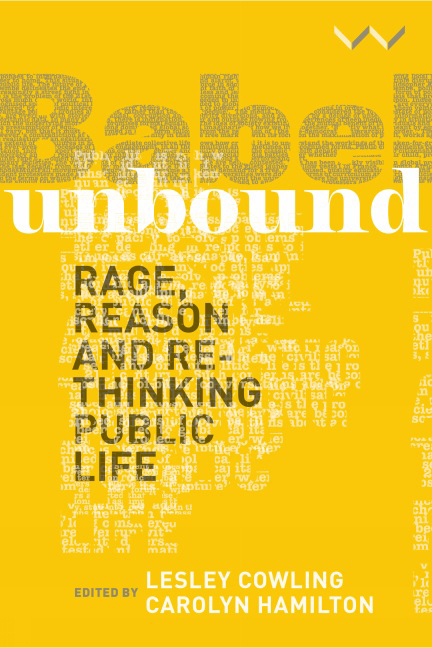Book contents
- Frontmatter
- Contents
- Acknowledgements
- Introduction
- Chapter 1 Rethinking Public Engagement
- Chapter 2 Tracing Public Engagements in Visual Forms
- Chapter 3 Media Orchestration in the Production of Public Debate
- Chapter 4 Fluid Publics: The public-making power of hashtags in digital public spaces
- Chapter 5 ‘Now We See Him, Now We Don’t’: The media and the ‘Black Pimpernel’
- Chapter 6 Archive and Public Life
- Chapter 7 Iconic Archive: Timbuktu and its manuscripts in public discourse
- Chapter 8 The Politics of Representation in Marikana: A tale of competing ideologies
- Chapter 9 Art-Rage and the Politics of Reconciliation
- Chapter 10 Anger, Pain, and the Body in the Public Sphere
- Contributors
- Index
Chapter 6 - Archive and Public Life
Published online by Cambridge University Press: 10 September 2020
- Frontmatter
- Contents
- Acknowledgements
- Introduction
- Chapter 1 Rethinking Public Engagement
- Chapter 2 Tracing Public Engagements in Visual Forms
- Chapter 3 Media Orchestration in the Production of Public Debate
- Chapter 4 Fluid Publics: The public-making power of hashtags in digital public spaces
- Chapter 5 ‘Now We See Him, Now We Don’t’: The media and the ‘Black Pimpernel’
- Chapter 6 Archive and Public Life
- Chapter 7 Iconic Archive: Timbuktu and its manuscripts in public discourse
- Chapter 8 The Politics of Representation in Marikana: A tale of competing ideologies
- Chapter 9 Art-Rage and the Politics of Reconciliation
- Chapter 10 Anger, Pain, and the Body in the Public Sphere
- Contributors
- Index
Summary
In public discussions, archives and records – concerning everything from past genocides to the bases of claims to citizenship or the tracking of disease regimes – play a significant role in establishing what is understood as the truth about a matter. Relied on to expose fictions and misuses of power, archives are also criticised for biases, omissions and inaccessibility, and for underwriting the views of those with power. Indeed, archives are currently a topic of increasingly heated public exchanges and sites of purposeful political intervention – being actively inaugurated, burnt down and much more between those poles. They are an important site of contestation in public life.
Focusing on the operations of power in and around archives, and tracking the role of archives in public discussion in three very different case studies, this chapter examines the dynamics of how archives come in and out of public view, gaining and losing things in the process. While preservation is at the heart of any archival project, this chapter argues that archives are not inert. They are forged and changed in political and public conditions, as well as through academic engagement. In turn, archives shape and change political, public and academic discourses and practices. Going beyond questions of the bias or otherwise of archives, and theorising archives and public discourse as mutually constitutive over time, the chapter offers a fresh perspective on heated contemporary debates about the role of archives in public life.
ARCHIVE(S)
It is useful to establish how the term ‘archive’ is being used, since, depending on usage, different things come into view.
Sometimes it is invoked as an epistemological term, as in the pompous phrase the ‘archive of Western civilisation’ or, more critically, as used by Michel Foucault in his notion of the archive as ‘the law of what can be said, the system of statements or rules of practice that give shape to what can and cannot be said’. Both of these instances, from almost opposite points of view, raise the issue of the way in which ‘archive’ is shot through with questions of power.
- Type
- Chapter
- Information
- Babel UnboundRage, Reason and Rethinking Public Life, pp. 125 - 143Publisher: Wits University PressPrint publication year: 2020



